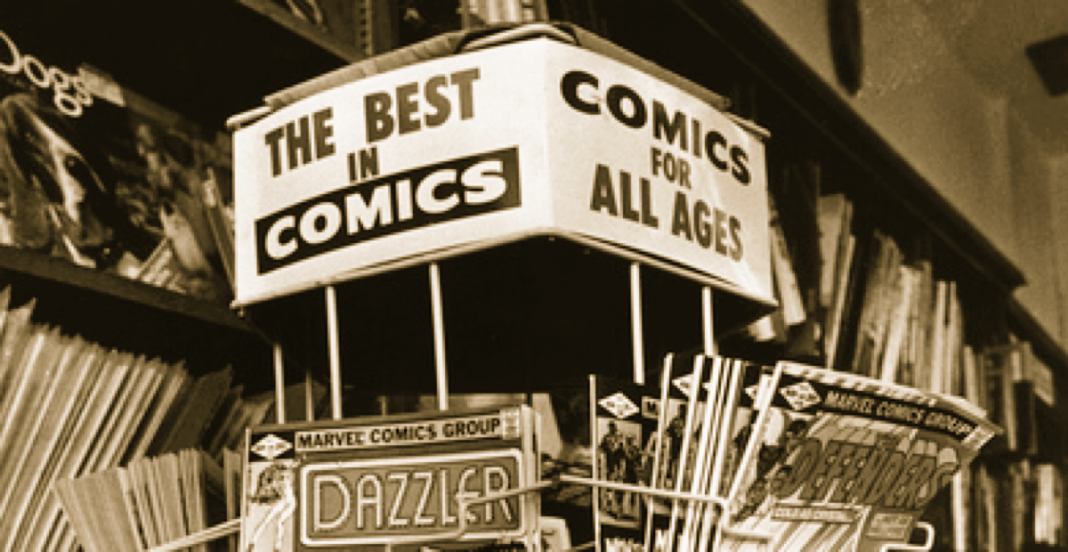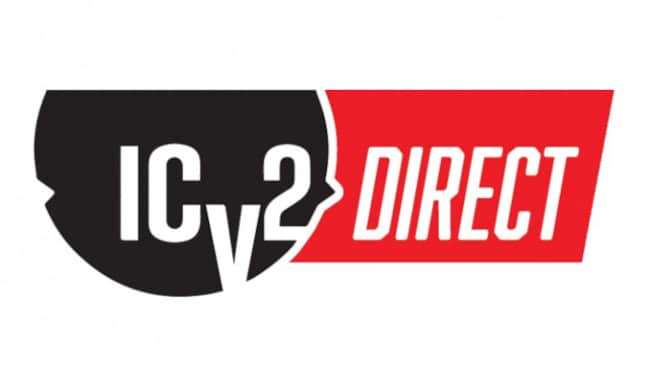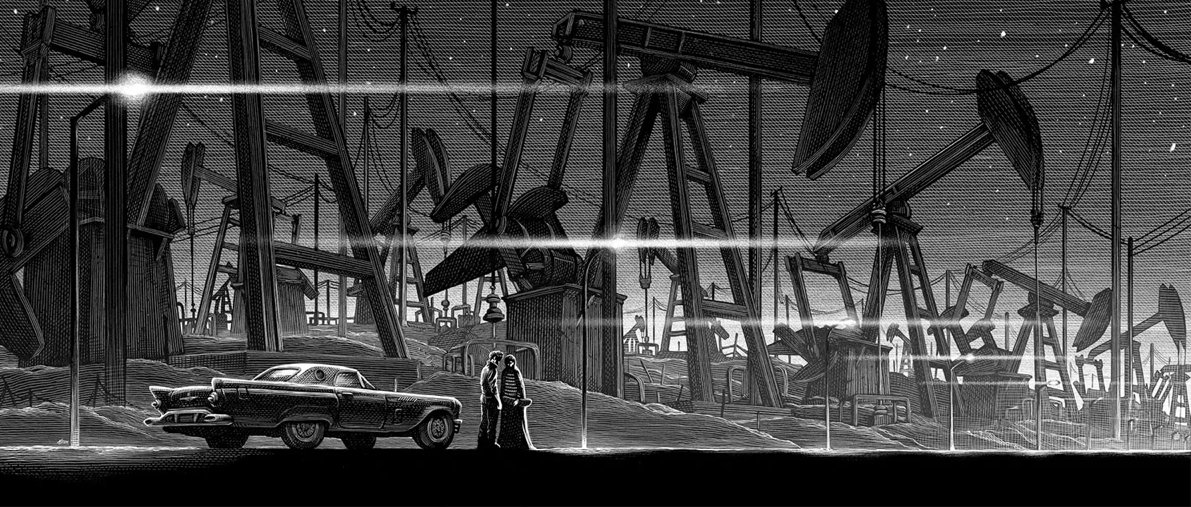Today on ICV2 is the story we have all been waiting for on the Marvel/PRH deal, written by the only person who could write it, Milton Griepp: MARVEL DISTRIBUTION DEAL PART OF LONG-TERM STRATEGY FOR PRHPS. It’s been pretty clear why Marvel would do this deal, but why would Penguin Random House, the world’s biggest publisher, get into the business of distributing comics pamphlets?
Griepp, as you may or may not know, was once the head of Capital City Distribution, Diamond’s onetime biggest competitor, and is as knowledgeable a person about comics and graphic novel distribution as walks the earth. For the story, he obviously spoke to people inside or “close to” PRH to get their reasoning for taking on this task.
I really urge each and every one of you to read this story, as it points the way to the future of the comics industry. However, I’ll give a few quotes and my own commentary to paint my own overview picture.
Two guiding principles led to the move. First, PRHPS sees developing the capacity to distribute periodical comics as a positive for serving existing clients, namely other graphic novel publishers. Current PRHPS publisher clients for graphic novel distribution to the book trade include Archie Comics, DC Comics, Dark Horse Comics, IDW Publishing, and Titan Comics, among others (see “The Big Get Bigger“). All of those companies also publish periodicals, and PRHPS will now be able to offer them a broader portfolio of distribution services. This interest in distributing periodicals actually goes back almost two decades (see Rob Salkowitz’s report, “What’s Behind Marvel’s Move to PRH“), and has now begun to come to fruition.
Second, PRHPS believes it can help comic stores be more successful by adapting its learnings from the independent bookstore channel, which until Covid was thriving in the midst of competition from Amazon, mass merchants, and specialty retail chains, and which has proven surprisingly resilient even in the face of pandemic closures. In general terms, the learnings from the indie bookstore channel include the lesson that distributor investments in information technology, logistics, sales and service, and trade credit produce healthier retailers and more business.
A bit further down, Griepp refers to PRH’s new Hampstead, MD facility, a “new operation designed from scratch to support modern distribution of single-issue comics.”
There’s life in them there floppies.
This represents a huge investment by PRH (which has the resources to invest) and also backs up something I’ve said here and on podcasts and panels for years: If you could offer a publisher a network of about 2000 stores that bought your product on a non-returnable basis, would you go for it? You’d be stupid not to.
PRH’s investment represents the confirmation of comics/graphic novels as a powerful business in their own right, but also validates the potential of comics shops as independent pop culture bookstores. Most of us have seen firsthand the passion and dedication of the best comics retailers, and PRH saw that as well, and sees the potential for more revenue for all concerned, given investment and time.
Griepp also points out that PRHPS (Penguin Random House Publisher Services) already sells directly to other wholesalers, including Ingram, and now Diamond, another move which gives stores more options for dealing with them. Reportedly, PRHPS won’t be aggressively seeking out more graphic novel clients — although unmentioned is the fact that they won’t need to if PRH’s purchase of Simon & Schuster goes through, as S&S has many other GN publishers sewed up.
And now a few more tidbits of news and analysis from my own research and reporting.
– What will become of Diamond? is the question everyone is asking. While things might look bleak for them, they actually have a lot of businesses besides Big Two comics they are involved in, including toys and games distribution. They’ve proven to be resilient in the past, and probably had an inkling this was coming.
– I’m also told that PRH is offering Diamond terms that may make them an affordable option for retailers who want to stick with them. As mentioned above, PRHPS is used to working with wholesalers, so this is not a new role for PRHPS.
– On the other hand, echoing in my mind, I keep hearing former DC head Diane Nelson’s since deleted comments when DC left Diamond: “… Diamond has, for a long time, been unwilling or unable to modernize and support and grow the biz as needed for a healthy direct channel. And may not even be solvent.” It isn’t just Diamond’s reliance on Windows95 in 2019. It’s part of Diamond’s core values to be very slow to update, upgrade or partner. I’m told by several highly placed industry insiders that they’ve been trying to connect Diamond with some of the traditional book industry’s players to no effect whatsoever. Diamond is caught up in its own little continuity line.
– As for future clients of PRH, as first reported here at The Beat, PRH cannot distribute Marvel books to bookstores because of a clause in DC’s contract with PRH. DC and Random House teamed up so long ago that I had a hard time getting Google to show me when this took place, but the deal was announced back in 2007. Whatever the exact clause in the contract, it was a product of the Paul Levitz/Bob Wayne regime, and it’s safe to say that the current Pam Lifford/Daniel Cherry regime probably has little interest in that kind of competition blocker, so…
– In talking to folks, the one thing I keep hearing from people who are worried about PRH, is that Diamond was the banker for the industry. If a shop was late on payments, Diamond worked it out with them. This was a consistent and collegial approach. (Whether it also led to some of the “solvency questions” above is an investigation for another time.) It is natural to fret over whether a gigantic international corporation like PRH will be as concerned with a teeny little comics shop; however, if the news that they want to develop this market is true, that would have to be part of the package.
Also, quite simply, PRH’s terms are ALREADY better than Diamond’s. PRH’s standard terms are for 60 days. Diamond’s terms that’s I’ve heard range from standard COD to two weeks for better customers and a special three weeks for special customers — part of the reason so many shops had to have credit floated.
– Also what about Lunar? That is a tale for another time.
– To sum up, if PRH is really doing the investment in the direct market that ICV2’s article suggests they are (and that I have heard independently) this could be one of the biggest changes in the comics direct market since the whole idea was hatched by Phil Seuling and Jonni Levas. There is, as we say, so much more to come.
For your one-stop research, here are a few more resources about the Marvel/PRH/Diamond/Retailing situation.
• Rob Salkowitz on what’s behind the Marvel/PRH deal
• David Harper talks to mutliple retailers about the deal (paywall)
• And below, retailer Brian Hibbs‘ public FB post about the subject, with a lively comments section.









I remember when traditional comic books were called comic books, not “floppies” or “pamphlets” or whatever .
Yeah please please please stop calling periodical comic books “floppies”, Heidi. It’s not clever; its insulting.
I don’t think its any shock that Marvel will likely be just the first domino, but I, for one, strongly doubt that PRH is going to be interested in much below (say) the Top 20 publishers. And even several of those almost certainly have predominate business models built around exploiting variant covers that a real and genuine distributor is probably not going to be interested all that much in servicing because it is high-touch, low-profit.
IF the S&S/PRH deal goes through, the resulting company will control basically all of the meaningful volume of comics sales that isn’t from Scholastic, and, I genuinely think, could face some serious anti-trust concerns as a result.
How much of Diamond’s business model is actually built around debt service and shipping upcharges, and how sustainable can THAT be when they lose the bulk of their periodical volume?
-B
Sweet.
As I sat poised over my keyboard, I wish I had put a sealed envelope in a vault saying “All of the comments on this story will be about my use of the term ‘floppy.'”
I spent all day intensively researching my last story (https://www.comicsbeat.com/more-on-penguin-random-house-marvel-distribution/) on this and just one comment! Clickbait works!
More seriously, Brian thanks for your comments, as always.
And if they do that I’m hopeful we’ll be fine, as alternative distribution models are already springing up. I think the biggest takeaway of PRH and S&S getting more and more involved in comics is that…they aren’t running a charity. There is money to be made.
“As I sat poised over my keyboard, I wish I had put a sealed envelope in a vault saying “All of the comments on this story will be about my use of the term ‘floppy.’””
And yet you still went ahead and used it, even thought the term is literally NEVER used by anybody outside of a subsection of the comic business. That’s how butthurt you are that your dream of graphic novels taking over the industry STILL hasn’t come even close to reality.
And I know less than nothing about the Direct Market next to Hibbs and even I can guess that a “real world” distributor is going to have little to no interest in the significant number of smaller publishers out there with sales that rank in the low four digits and below.
Mike
Except, Mike, that Graphic Novels DO outsell periodicals, sheesh.
Otherwise you’re right :)
-B
Comments are closed.